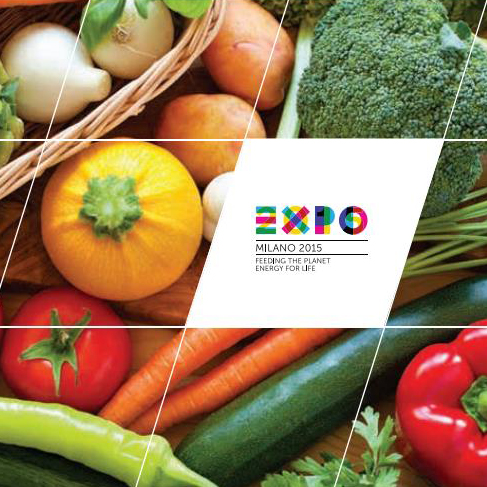Farmers, advisers and researchers contribute to the organic research agenda in Milan
At the Universal Expo in Milan, the most innovative European farmers were invited to exchange their experiences with organic food and ingredient production at the conference: "Organic production, Research and Innovation: Setting priorities for the future", organised by the European Commission.

The Europeans want more organic products, and the demand and numbers of producers are rising. Every year more than 500.000 hectares of land are converted into organic farming in EU. In the period of 2000-2012 the total acreage increased by 6.7 per cent annually and it reached an estimated acreage of 9.6 million ha., which amount to 5.4 per cent of the total utilized agricultural area in Europe.
But it is not always easy to be an organic farmer. In the latest action plan about Organic Agriculture, the European Commission highlighted the challenging task of developing and responding to the consumers’ demands without putting their trust in organics at risk.
The aim of the conference “Organic production, Research and Innovation: Setting priorities for the future" was:
- bringing together researchers, farmers, farm advisors and other stakeholders to discuss and share ideas and knowledge on research and innovation in the organic production sector;
- gathering the research needs directly linked to the production of organic inputs, organic raw materials and organic products.
Over 170 participants from all over Europe (farmers and farm advisers, and researchers) shared ideas and knowledge, and discussed needs for research and innovation in the organic farming sector. The European Commission will use the results to further develop its research and innovation policies, especially the 2018 - 2019 programme for Horizon 2020, but also the EIP-AGRI.
BICOPOLL, ProPig and OK-Net Arable as best case examples
At the conference, coordinators from four research projects contributed with presentations of their work. Among the projects were BICOPOLL, ProPig and OK-Net Arable. BICOPOLL and ProPIG are CORE Organic II projects and in OK-Net Arable ICROFS is involved as a partner.
Heikki Hokkanen told about how the project BICOPOLL will improve the quality and marketable yield of strawberry crops by developing simple, effective, targeted biological control of the most important berry disease - the grey mould - and by improving crop pollination by bees.
Christine Leeb presented ProPIG’s aim to investigate the interaction of animal health and welfare with nutrition and environmental impact. Improved health can lead to decreased medicine use and higher feed conversion efficiency, therefore the environmental impact across three housing systems can possibly be reduced. Both BICOPOLL and ProPig are funded via the ERA-net CORE Organic II by national funds to each partner. CORE Organic II was a collaboration between 21 countries (2010-2013) on initiating transnational research projects in the area of organic food and farming. CORE Organic is coordinated by ICROFS.
Lastly, the thematic Network ‘OK-Net Arable’ was presented by Bram Moeskops as a good example of how farmers and researchers work together to share knowledge and identify the best ways to do so. The overall aim of ‘OK-Net Arable’ is to improve the exchange of innovative and traditional knowledge among farmers, farm advisers and scientists to increase productivity and quality in organic arable cropping all over Europe. OK-Net Arable is one of the first four thematic networks funded by Horizon 2020 and ICROFS is one of the 17 project partners.
Some of the ideas generated at the conference in Milan should result in research projects under the EU Research and Innovation programme Horizon 2020, which is the biggest EU Research and Innovation programme ever with nearly €80 billion of funding available over 7 years (2014 to 2020).
By coupling research and innovation, Horizon 2020 is helping to achieve this with its emphasis on excellent science, industrial leadership and tackling societal challenges. The goal is to ensure that Europe produces world-class science, removes barriers to innovation and makes it easier for the public and private sectors to work together to deliver innovation.
Conference held in the framework of Expo Milano 2015
"Organic production, Research and Innovation: setting priorities for the future" was held in the framework of Expo Milano 2015.
Expo Milano 2015 is the Universal Exhibition that Milan, Italy, hosts from May 1 to October 31, 2015.
Over this six-month period, Milan will become a global showroom where more than 140 participating countries will show the best of their technology that offers a concrete answer to a vital need:
The ability to guarantee healthy, safe and sufficient food for everyone “while respecting the Planet and its equilibrium”. It is a platform for the exchange of ideas and shared solutions on the theme of food, stimulating each country’s creativity and promoting innovation for a sustainable future.
Relevant links
See presentations from the conference:
"Policy Frames and Formats" pdf - 3 MB [3 MB] (Iman Boot, EC, DG Agriculture and Rural Development)
"BICOPOLL: Managing bees for delivering biological control agents and improved pollination in berry and fruit cultivation" pdf - 2 MB [2 MB] (Heikki Hokkanen, University of Helsinki)
"From diversity strategies to participatory innovations for organic and low input food systems" pdf - 2 MB [2 MB] (Véronique Chable, INRA Rennes France)
"Farm specific strategies to reduce environmental impact by improving health, welfare and nutrition of organic pigs" pdf - 3 MB [3 MB] (Christine Leeb, University of Natural Resources and Life Sciences, Vienna)
"OK-Net Arable" pdf - 365 KB [365 KB] (Bram Moeskops, IFOAM EU)
Read more about CORE Organic (coreorganic.org), and these two projects at coreorganic2.org/bicopoll and coreorganic2.org/propig
Learn more about the thematic network OK-Net Arable (ok-net-arable.eu)